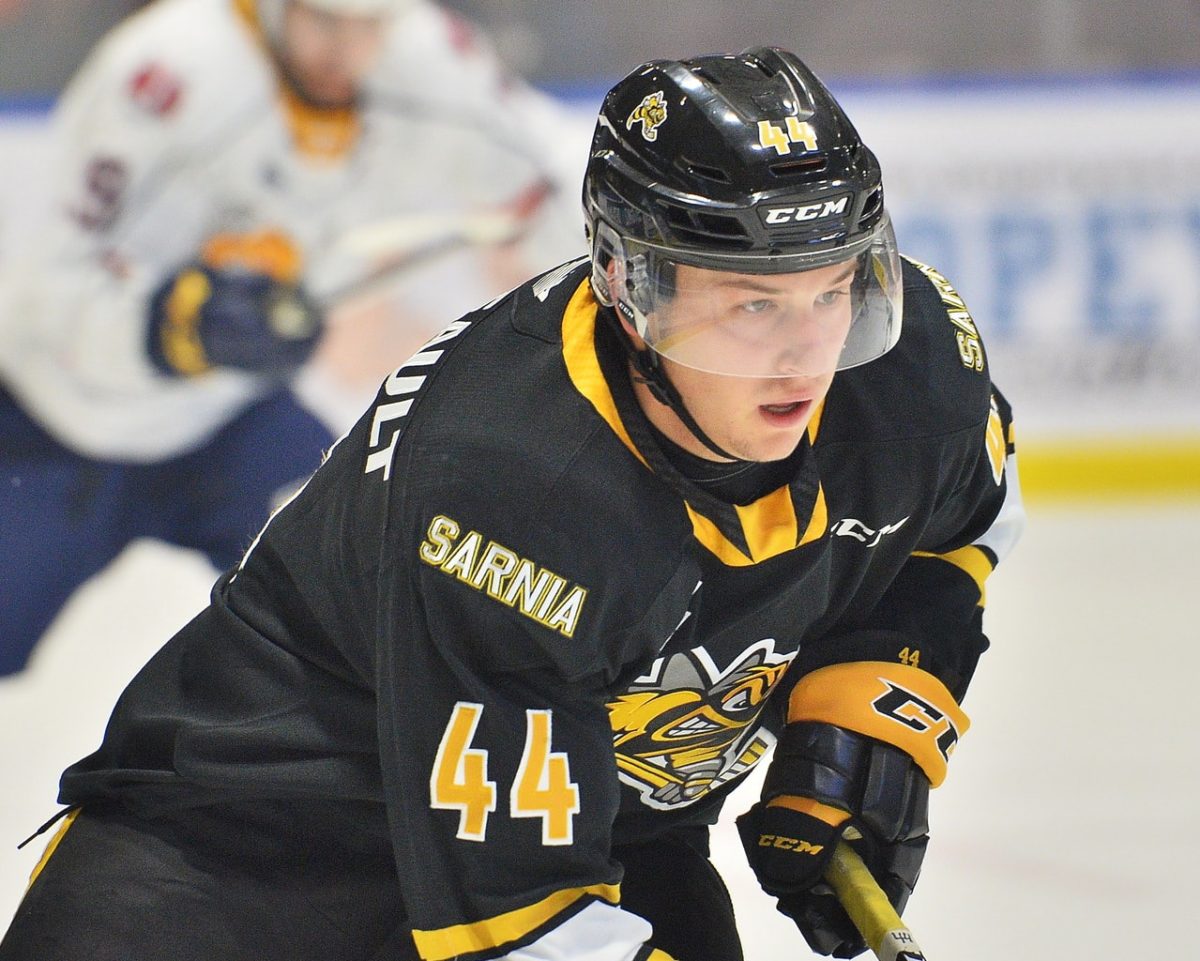The day before the trade deadline, the Montreal Canadiens made a minor league prospects trade to bring in hometown boy Jacob Perreault in exchange for former 2020 second-round pick Jan Mysak.
For general manager (GM) Kent Hughes, a trade like this is not earth-shattering; as a matter of fact, it barely registered, even in hockey-mad Montreal, but it has the potential to make an impact at the American Hockey League (AHL) level.
Canadiens Newest Perreault
Jacob is the son of former Canadiens forward Yanic Perreault, a veteran of 859 games – 224 of which were with Montreal, and the older brother of New York Rangers prospect Gabe Perreault. With Laval in a battle to earn a playoff position, his addition is expected to offer some much-needed offensive skill.
Perreault is a pure offensive forward who has mobility and an excellent shot. Offensively, he seems a perfect fit, with his mobility, deceptive movements in the offensive zone, and his shot. He skates low to the ice, which helps the 5-foot-11, 192-pound right-winger keep on balance when playing in traffic or along the boards. He is a deceptive player, using his first step to catch defenders off balance when changing directions or a spin move along the boards to reverse the flow of play. He plays a style that fits within the Canadiens’ system. He is a winger with some speed adept at playing in transition but is also a strong, controlled zone entry-style player. When he has control of the puck, he is cool and calm, and once he is in the offensive zone, his offensive IQ allows him to play off other skill players to generate scoring chances.

However, the knock on him has always been his off-puck play. While he has shown instances of maximum effort in his backcheck, it has been inconsistent. That is unfortunate as his offensive hockey sense allows him to gain a step on his opposition and find excellent placement in his own zone which helps to break up any offensive momentum in his defensive zone. But again, it is inconsistent. That inconsistency leads to making desperation moves to react to the opposition, which also leads to turnovers in the neutral and defensive zones. When he is completely engaged, he is a top-six player; when he isn’t, he is a liability when up against top-six talent.
Canadiens Give a Second Chance
He had battled injuries his entire professional career, playing only 27 games in rookie AHL season. In 2021-22, Perrault was at his healthiest, playing in his first NHL game and dressing for 55 games with the San Diego Gulls, scoring 14 goals and 37 points, helping his club into the playoffs. The following season, in 2022-23, Perrault disappointed in every statistical category. Dropping to 48 games played with eight goals and 19 points. His shot totals dropped as well, going from 2.4 per game in 2021-22 to an anemic 1.2 per game last season. That drop in production and shot totals points directly to his injury problems. Yet, it is also because the Gulls were the worst team in the AHL last season and are in the basement of the standings again this season.
He was aiming for a bounce-back year for 2023-24, which he began to have, but was again dealing with minor injuries that caused him to miss games. Despite that, he had been productive on a very weak team, scoring seven goals and 18 points in 31 games before being dealt to the Canadiens’ AHL affiliate.
His most significant off-ice issue is health. Perreault has been developing but slowly due to a string of injuries. Two seasons ago, he played his most games in the AHL (55), scored 37 points, and was called up to the NHL as a reward. This leap in production stemmed from the then 19-year-old Perreault finding chemistry Brayden Tracey. This helped get the Gulls into the playoffs that season as well. Another issue with his development is a lack of stability in the Ducks’ organization. There have been two different head coaches this season, and Perreault has had to adjust to four different head coaches in the AHL since he arrived in the league at age 18. Also, the Gulls have been putrid defensively. If he can begin to remain healthy, and Montreal can provide him with some stability in the coaching system, the now 21-year-old right-winger may be able to get his development back on track.
This season may be a wash for the young Montreal native, but he will have all of next season in the new system to prove himself and at minimal risk to management as he is still on his entry-level contract (ELC) and waiver-exempt. For Perreault, a new organization, but one that provides a taste of home, could be beneficial. Mysak and Perrault will remain in the AHL for now, but the change of scenery could be exactly what they both needed. Neither was high on their prior team’s depth chart, but they are both still young and capable of finding their rhythm. For Perreault, it will be to rediscover what made him a first-round pick: his offensive game.

